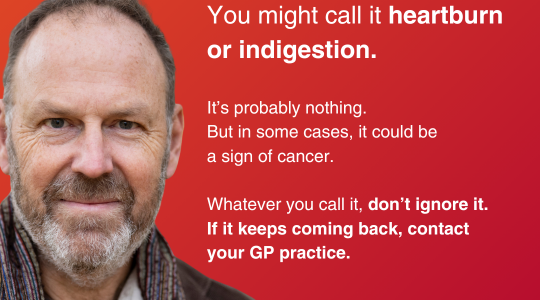Make 2024 your healthiest year yet
As a new year begins, many of us find ourselves thinking about resolutions to lead a healthier life. Whether it's quitting smoking, cutting back on alcohol, or adopting overall healthier habits, the start of a new year provides an excellent opportunity to embrace positive changes.
Here are five practical steps you can take to improve your well-being and, importantly, reduce the risk of certain cancers.
1. Quit smoking for good
If you're a smoker, the single most impactful change you can make for your health is to quit smoking. Smoking is a leading cause of various cancers, including lung, throat, and bladder cancer. Moreover, it increases the risk of heart disease and respiratory issues. The good news is that the human body has an incredible ability to heal itself, and quitting smoking significantly reduces the risk of developing these health problems.
Consider seeking support from friends, family, or a dedicated quit-smoking programme. The NHS offers free resources and support to help you kick the habit for good.
Watch our quit smoking video to find out more: https://youtu.be/hyTd6g3GnlE
2. Moderate alcohol consumption
Reducing alcohol intake is another positive step toward a healthier lifestyle. Excessive drinking is linked to an increased risk of liver cirrhosis, heart disease, and certain cancers, such as liver and breast cancer.
The recommended alcohol limits in the UK are 14 units per week for both men and women. This is equivalent to about six pints of beer or seven glasses of wine. Be mindful of your alcohol consumption, and consider alcohol-free days to give your body a break.
Watch our alcohol reduction video to find out more: https://youtu.be/Z3K6c6XjHGA
3. Prioritise a balanced diet
A well-balanced diet is a cornerstone of good health. Opt for a variety of fruits, vegetables, whole grains, and lean proteins. Reduce your intake of processed foods, sugary snacks, and saturated fats. A healthy diet not only provides essential nutrients for your body but also helps maintain a healthy weight.
Maintaining a healthy weight is crucial in reducing the risk of many cancers, including breast, colorectal, and pancreatic cancer. By making smart food choices and adopting portion control, you can achieve and maintain a healthy weight, positively impacting your overall well-being.
Watch our video on healthy food to find out more: https://youtu.be/h261rOsTSVQ
4. Stay physically active
Regular physical activity is vital for maintaining a healthy body and mind. Aim for at least 150 minutes of moderate-intensity exercise per week, such as brisk walking, cycling, or swimming. Engaging in physical activity helps reduce the risk of various cancers, including breast and colon cancer.
Exercise not only contributes to weight management but also boosts your immune system, improves cardiovascular health, and enhances mental well-being. Find activities you enjoy, whether it's dancing, hiking, or playing sports, and make them a regular part of your routine.
Watch our video on physical exercise to find out more: https://youtu.be/9-j9WT4AsT0
5. Access free NHS screening programmes
In addition to adopting lifestyle changes, participating in cancer screening programmes is a crucial aspect of safeguarding your health. Early detection can make a significant difference in the outcome of cancer treatment.
Various cancers, including breast, cervical, and colorectal cancers, can be detected in their early stages through routine screening. These programmes are designed to identify abnormalities or precancerous cells before they develop into full-blown cancer, enabling timely intervention and increasing the chances of successful treatment.
Regular screenings are essential, as they allow healthcare professionals to catch potential issues early when treatment options are often less invasive and more effective. Make sure you attend all your screening appointments!
Watch our animated videos to find out more about the three main screening programmes in England:
- Bowel screening: https://youtu.be/m-Xmtdh_QVo
- Breast screening: https://youtu.be/6SAhNkuAF_4
- Cervical screening: https://youtu.be/XMBFvN4ioBE
For more information
Visit our cancer prevention web pages to access more health tips and resources.





